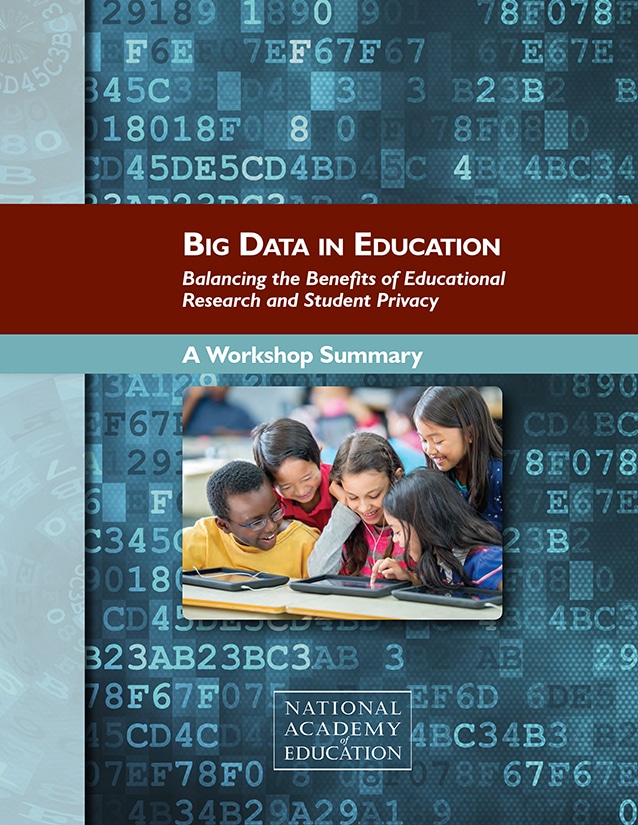The National Academy of Education (NAEd) released a new report on Big Data in Education: Balancing the Benefits of Educational Research and Student Privacy. The report addresses a fundamental tension of how to reap the educational benefits that access to comprehensive “big” data provides while ensuring student privacy.
In order to understand and improve teaching and learning, education data must be available to researchers, and the privacy of children and families must be protected. This report, based upon a workshop, reviewed the benefits of educational research using modern data systems, the risks to the privacy of families and children, and technical and political solutions for maximizing benefits and minimizing risks. In particular, the report recommends that the research community (1) adopt common terminology, (2) communicate the importance of educational research more effectively, (3) build strong partnerships and models to ensure the sharing of data, and (4) better educate researchers and universities on privacy issues. As Susan Fuhrman, President of Teachers College, Columbia University and co-chair of the steering committee noted, “We live in an era where we can capture ‘learning process data’ as minute as student keystrokes and time lapses in answers. In this report, we recommend steps to make the linking of learning process data to existing administrative data sets – which can be incredibly powerful to advance all teaching and learning – while still protecting student privacy.”
For more information on the report, including a background paper, and panel videos and summaries, please visit https://naeducation.org/bigdata.
The steering committee for this project was co-chaired by Susan Fuhrman, Teachers College, Columbia University and P. David Pearson, University of California, Berkeley. Additional committee members included: Elizabeth Buchanan, University of Wisconsin-Stout; Chris Dede, Harvard Graduate School of Education; Louis Gomez, University of California, Los Angeles; Andrew Ho, Harvard Graduate School of Education; and Sophia Rabe-Hesketh, University of California, Berkeley. The National Academy of Education (NAEd) advances high-quality research to improve education policy and practice. Founded in 1965, the NAEd consists of members who are elected on the basis of outstanding scholarship related to education. The NAEd undertakes research studies to address pressing issues in education and administers professional development programs to enhance the preparation of the next generation of education scholars. The work was funded by the Ewing Marion Kauffman Foundation.
The contents of this publication are solely the responsibility of the National Academy of Education.
Please contact Amy Berman or Greg White for any inquiries.
###

